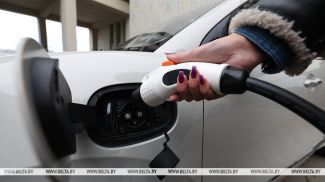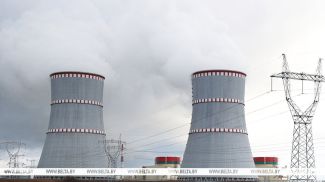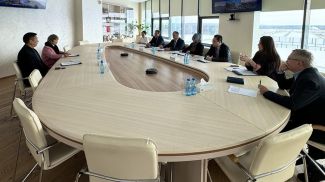MINSK, 10 December (BelTA) – Belarus plans to make up for the losses resulting from Western sanctions by increasing its presence in the markets of Russia, Asia and Africa, Prime Minister Roman Golovchenko said as he met with members of the House of Representatives and the Council of the Republic in the Oval Hall to discuss budget bills on 10 December, BelTA has learned.
The government drafted a development scenario and outlined the tasks that made up the core of the president's decree on the most important development parameters and the target plan that is approved by the government. The GDP is expected to grow by 2.9%, real disposable household income by 2%, fixed assets investment by 3.3%, the export of goods and services by 6.3%, inflation by no more than 6%. Next year the domestic economy should grow mostly on the back of the export. The export of goods is projected to expand by over 6%. This forecast is based on the economic outlook for Belarus' major trading partners.
“We have assessed the losses resulting from the sanctions that we will incur in the Western markets, we will make up for them by expanding our presence in the markets of Russia, Asia and Africa. Russia and China remain our strategic partners. We plan to grow exports in these markets by the average of about 6%. We will step up efforts to tap into new markets,” Roman Golovchenko said.
The government made production and export projections across majors commodities. For example, the export of buses is expected to increase by 50%, that of trucks by more than 10%, cars by 40%, ferrous metals by 12%, woodworking products by 8%. In general, the foreign trade surplus is projected at up to $3 billion.
According to the prime minister, the government is not expecting a significant revival of investment activity next year due to both the pandemic-related restrictions and sanctions. "We proceed from the fact that Western borrowing channels will be frozen for us. Under these conditions, raising more Western capital for the economy does not seem possible. Domestic resources are also limited and will be primarily channeled into production in order to maximize the export opportunities. Taking into account these factors, investments are projected to edge up by 3.3%. We plan to invest about Br36 billion in the economy," he said.
Improving the well-being of people will remain the main priority for 2022. Real disposable income is to increase by 2%. "Wages are projected to increase by Br135 (up to Br1,551), wages for public sector workers are to grow by almost Br125 (up to Br1,241). Pensions will rise by more than Br70 (up to Br596)," Roman Golovchenko said.
"The targets for 2022 are aimed to ensure a balanced and quality GDP growth and to meet the tasks envisaged in the government's programs and the five-year plan," the prime minister concluded.













